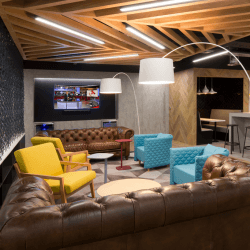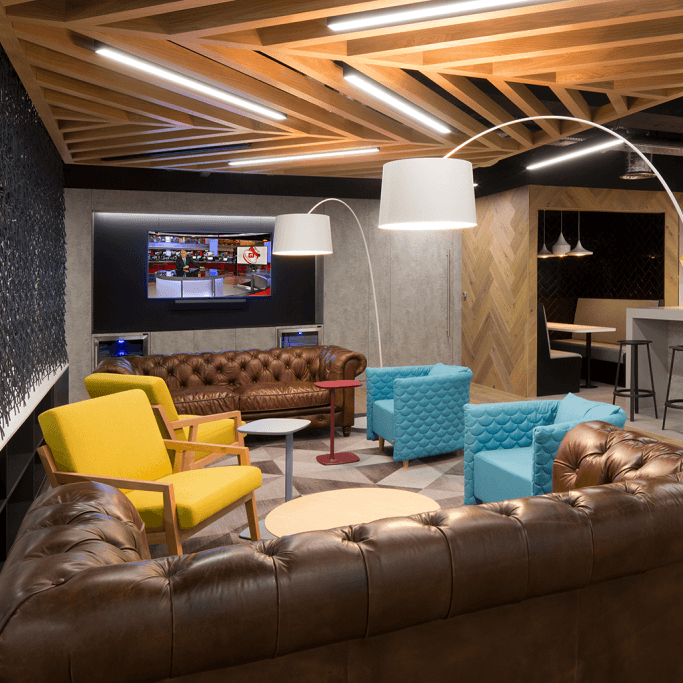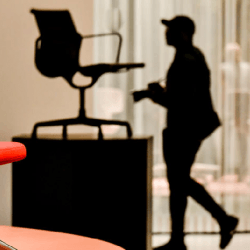To provide the best experiences, we use technologies like cookies to store and/or access device information. Consenting to these technologies will allow us to process data such as browsing behaviour or unique IDs on this site. Not consenting or withdrawing consent, may adversely affect certain features and functions.
The technical storage or access is strictly necessary for the legitimate purpose of enabling the use of a specific service explicitly requested by the subscriber or user, or for the sole purpose of carrying out the transmission of a communication over an electronic communications network.
The technical storage or access is necessary for the legitimate purpose of storing preferences that are not requested by the subscriber or user.
The technical storage or access that is used exclusively for statistical purposes.
The technical storage or access that is used exclusively for anonymous statistical purposes. Without a subpoena, voluntary compliance on the part of your Internet Service Provider, or additional records from a third party, information stored or retrieved for this purpose alone cannot usually be used to identify you.
The technical storage or access is required to create user profiles to send advertising, or to track the user on a website or across several websites for similar marketing purposes.
 A brace of new reports sets out to identify the challenges organisations set themselves by inhabiting dated offices and how modern office design principles could address them. According to the Meeting Expectations report, released by K2 Space, workplace productivity is being impeded as a direct result of dated office design. The second study from Saracen Interiors focuses more on the role of office design as a recruitment tool. The reports follow the recent publication of a major report on similar themes from Worktech Academy and Fourfront Group.
A brace of new reports sets out to identify the challenges organisations set themselves by inhabiting dated offices and how modern office design principles could address them. According to the Meeting Expectations report, released by K2 Space, workplace productivity is being impeded as a direct result of dated office design. The second study from Saracen Interiors focuses more on the role of office design as a recruitment tool. The reports follow the recent publication of a major report on similar themes from Worktech Academy and Fourfront Group.





 New research suggests as the supposed ‘technologically savvy’ millennials enter the workforce they are more likely than older workers to break the most basic of security rule, reusing passwords across different accounts. This is according to the results of the 10th Annual Market Pulse Survey from SailPoint Technologies Holdings, which finds that despite an increased focus on cybersecurity awareness in the workplace, employees’ poor cybersecurity habits are getting worse, which is compounded by the speed and complexity of the digital transformation.
New research suggests as the supposed ‘technologically savvy’ millennials enter the workforce they are more likely than older workers to break the most basic of security rule, reusing passwords across different accounts. This is according to the results of the 10th Annual Market Pulse Survey from SailPoint Technologies Holdings, which finds that despite an increased focus on cybersecurity awareness in the workplace, employees’ poor cybersecurity habits are getting worse, which is compounded by the speed and complexity of the digital transformation. 


 Workers are increasingly introducing technology devices, software and other tools into the workplace without their employer’s approval, claims a new report from NextPlane that examines the extent of this growing rift and its impact on collaboration and productivity. Nearly half of professionals (46 percent) said they or their team have introduced new technology into their workplace, and despite IT attempts to remain in control, workers are not standing down, as 53 percent said they or another team have pushed back on IT or management when they tried to dictate the technology they use.
Workers are increasingly introducing technology devices, software and other tools into the workplace without their employer’s approval, claims a new report from NextPlane that examines the extent of this growing rift and its impact on collaboration and productivity. Nearly half of professionals (46 percent) said they or their team have introduced new technology into their workplace, and despite IT attempts to remain in control, workers are not standing down, as 53 percent said they or another team have pushed back on IT or management when they tried to dictate the technology they use.








 The rise of data and digitisation has led to the demise of the traditional working day for many CEOs, with a third now checking business analytics first thing in the morning and last thing before they go to bed. This peaks at 54 percent among 25-34 year olds but drops to just 5 percent for leaders over 45, who are much more fixed to their desk. According to the research by Domo (registration required), 80 percent of these leaders prefer to wait until they are in the office to check in. Three quarters (71 percent) of CEOs across the UK and Ireland believe their business could be at risk from current blind spots in data access and skills, however, there is another demographic split. 84 percent of CEOs age 25-34 said it could be a risk, compared to just half of over 55s.
The rise of data and digitisation has led to the demise of the traditional working day for many CEOs, with a third now checking business analytics first thing in the morning and last thing before they go to bed. This peaks at 54 percent among 25-34 year olds but drops to just 5 percent for leaders over 45, who are much more fixed to their desk. According to the research by Domo (registration required), 80 percent of these leaders prefer to wait until they are in the office to check in. Three quarters (71 percent) of CEOs across the UK and Ireland believe their business could be at risk from current blind spots in data access and skills, however, there is another demographic split. 84 percent of CEOs age 25-34 said it could be a risk, compared to just half of over 55s.













November 13, 2018
Fostering creativity within organisations through space and culture
by Serena Borghero • Comment, Workplace design
More →